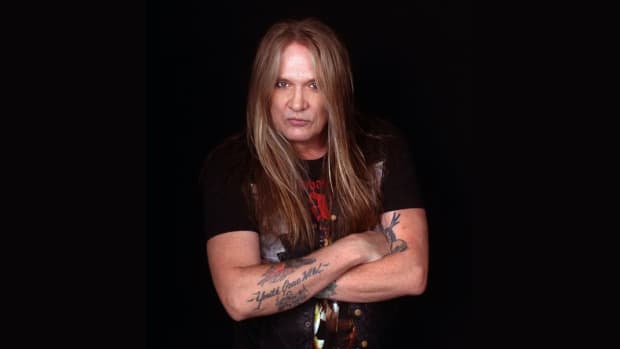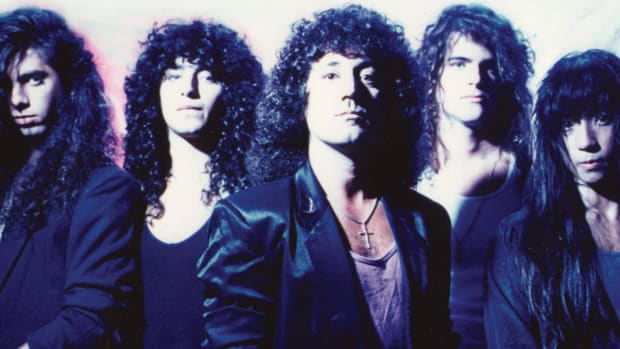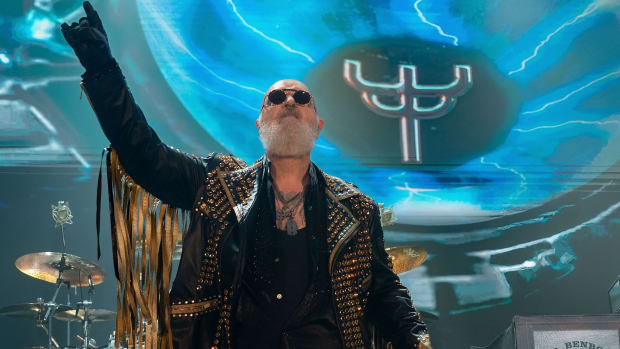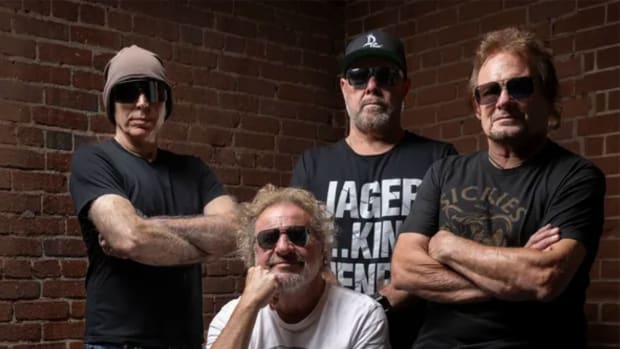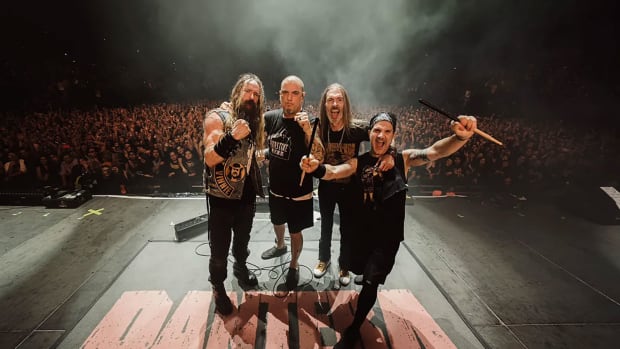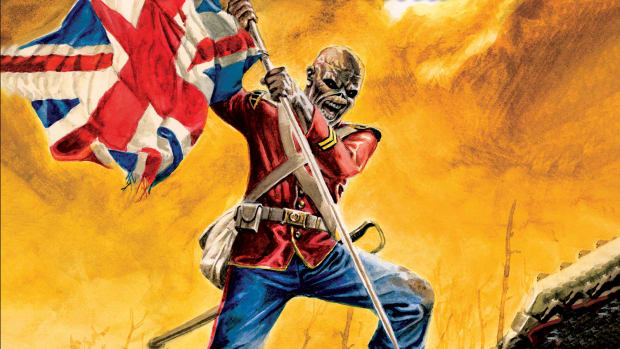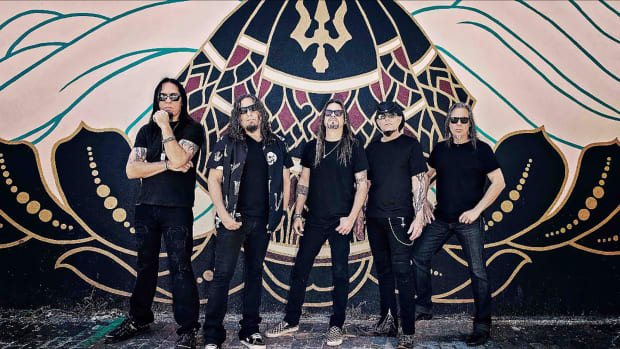
'I've retired more times than Sinatra': David Coverdale on Whitesnake’s resurgence and the new ‘Still Good to Be Bad’ box set
Since reforming Whitesnake for good back in 1997, David Coverdale has surrounded himself with a myriad of inventive musicians capable of holding their ground up against Coverdale's overarching musical vision.
The aptly titled Restless Heart (1997) was a new beginning for David Coverdale. The '90s began with the golden-voiced rocker laying his brainchild to rest, but by later in the decade, Coverdale had done an about-face. Years of soul-searching and taking the time to make music on his own terms had given him a unique perspective, enabling him to re-launch the mighty 'Snake.
Still, Coverdale took his time, and while Whitesnake remained active on the touring circuit, as the band entered the mid-2000s, no new studio music had come to fruition. But that all changed as Coverdale's creative music merged with guitarist Doug Aldrich's, leading to Whitesnake hitting the studio for the first time in nearly a decade.
The result was Good to Be Bad (2008), a record that many diehards deemed "the rock album of the year" and the "best comeback album anyone could ask for." Bold assertions aside, the chemistry between Coverdale and Aldrich was undeniable, leading to results not seen since Whitesnake's classic 1987 self-titled long player.
Though Aldrich is no longer with Whitesnake, Coverdale continues to have the cream of the crop reside in his musical orbit. As for Good to Be Bad, time has been kind to the record, with fans still often citing it as Whitesnake's finest latter-day record. And it's for those reasons, as well as the effortless nature of the record, that Coverdale has sought to reissue Good to Be Bad as a boxset titled Still Good to Be Bad.
As Coverdale dialed in with Metal Edge, it was immediately clear that the now 71-year-old icon's infectious effervescence and palatable charisma would lend themselves to an intriguing chat. To that end, Coverdale dug into the origins of one of Whitesnake's more intriguing records.
After reforming Whitesnake in the late ‘90s, why was there such a long lag between Restless Heart and Good to Be Bad?
David Coverdale: Well, I did have the solo album in 2000 [Into the Light], which was basically a Whitesnake album if you listen to some of the songs. But by the time I had put the revamped version of Whitesnake back together in 2003, I think I was ready to open that door again. And really, that was to celebrate the 25th anniversary, plus the Scorpions had baited me to do a headlining tour of the U.S. for the first time in 12 years. And then the record company was saying the same thing, "David, let's do something special for this." So, that was what got me putting stuff together.
The chemistry between you and Doug Aldrich seemed palatable.
Coverdale: It was. I remember telling all the musicians involved – particularly Doug, who is just an extraordinarily gifted musician – "Look, I don't want to get back into corporate America. I've done well but don't want to deal with them." And because of that, at that point, we had no clue that we would make a record. So, we went out on tour and played all the hits. And at this same time, everyone is telling me, "Oh, the business is so bad. We can't sell records." But if I'm bored singing "Love Ain't No Stranger," what's my hardcore fanbase thinking about the whole bloody thing?
What moved the needle toward recording again?
Coverdale: The situation was that Doug, myself, and all the guys got on so well. But mainly, Doug and I were very close. He was what I'd call my bandleader. So, we said, "Let's see if we can take our friendly conversations, go into the studio, and see if something clicks." And truth be told, it was a marriage made in heaven. Both Good to Be Bad and Forevermore were relatively effortless records for us to work on together.
Doug was a great co-producer, friend, and an extraordinary musician. And, of course, I didn't want to do anything with the majors, so a company called SPV came a-knockin', and I thought, "Well, I've never done anything with an independent label; let's give it a go." And it started absolutely amazing, but sadly, that company went belly up. I suppose it turned into something you'd liken to the Titanic.
Good to Be Bad seemed to capture the classic Whitesnake sound. So much so that I'd liken your creative relationship with Doug to that of John Sykes in the '80s.
Coverdale: Interesting take. But what's funny is that most of the American musicians I've worked with haven't been too familiar with the albums prior to Slide It In. I guess those albums didn't really cross over the water too much. They were more familiar with the big rock albums that had become popular with so many people in the States. Whereas Doug had worked with a singer called Kal Swan in Lion, who was a Scottish guy, and he had all the early Whitesnake albums.
So, Doug was introduced to all the early stuff, which enabled him to carry the feeling of those early records into what we were doing. Plus, he's a super musician and such a great guy. But even with that, when we went into those albums, we knew there was no guarantee that our muses would work together. But as fate would have it, ours did work well together, with some terrific results coming out of it.
Was it apparent that you had a winner out of the gate?
Coverdale: It was evident from the get-go that this could be really solid, that I remember. And when we finished Good to Be Bad, I felt strongly enough to think, "Okay, this could be my last album. I'm with these songs being my final album." I mean… you had great musicians, and the songs had what I felt were some quality vocals. I was thrilled with it and, at the time, was okay with it being the last Whitesnake record. The thing for me is that I never wanted to be average, and I felt that Good to Be Bad was far from average. But of course, I've retired more times than Sinatra, [laughs] but I thank god that I got back in the saddle because I've ended up having an amazing last 20-odd years.
Did the resounding response to Good to Be Bad surprise you?
Coverdale: To be honest, I've been doing this for so long, I hardly worry about that anymore. I do the best I can, as my audience knows, and I try to inspire the musicians around me to do the same. With that in mind, I only invite people into Whitesnake if I feel they can help me take another few rungs up the ladder. So, if I'm happy with what we've achieved, I'm good. I don't look at critical stuff. I've never been the golden boy of critics, even if I am sitting on a very significant 50-year career. [laughs] To me, it's about creating quality music that makes me happy and makes the audience happy.
What has been the most important factor in your being able to make the last 20 years so successful?
Coverdale: The passion and the people involved. You can have all the talent you want, but it won't work if the roads don't meet, it won't work. I've had instances where I was working with people, and we didn't mesh, and others where it was marvelous. For example, the project I did with Jimmy [Page] was a perfect example of two different roads coming together beautifully. Those roads were seemingly divergent, but we were able to point things in one common direction, and it was wonderful.
So, it's been the same for Whitesnake since 2003, then?
Coverdale: Exactly. I've used that same mindset in Whitesnake to where all these different minds have come in and re-energized the band. That's how it started. It began with Doug and continued with Reb [Beach] and Joel [Hoekstra]. But looking back on it, when Doug and I first got going, I said to him, "Look, don't take it personally, but at any given moment, I might go, "Dude, this ain't working.'" But that didn't happen.
Your creative process – including the musicians you choose to have around you – has always struck me as deeply instinctual.
Coverdale: I agree. Having been doing this for so long, I have an innate instinct for something or someone I think is solid. The people you have around you are so important. And for me, I need people who are interested in driving things forward. For instance, with Reb and Joel, we'll be in the studio, and I'll say, "Okay, what have you got?" And Reb will play me something, and I might go, "No, I can hear Kip [Winger] signing that. Let's try again." And then Joel will play something, and I'll say, "Okay, but let's fire it up and make it red hot." And if not, it's, "No, let's tear this shit down and try again." It's all part of the ride when you're in this band. I always tell them, "C'mon, you're a ‘Snake now, baby!"
What's your secret to continued success?
Coverdale: We've been blessed with great headcounts at shows, and I've got a wonderful band around me. I will say it's weird to hear people say records aren’t selling like they used to, but I still work to make great records regardless. I feel it's like the old saying, "If you build it, they will come." So, we've made good records that aren't throwaways. I'm not milking the tits of a dead cow, as Ritchie Blackmore once told me. [laughs] That was a Ritchie Blackmore quote. Working with inspiring people and caring about this as much as I do have been imperative for the last 20 years.
You've been at it for 50 years now; do you have any regrets or anything you'd change?
Coverdale: First and foremost, I have no regrets. But there are always things you could look back on and tweak, and that's what I'm doing. Now in terms of my career, I'm rearranging the furniture within the house of Whitesnake. Nothing major, just some new couches, dining tables, and a new coat of paint here and there. It all feels fresh to me, so I plan to continue with more reissues and box sets like the Still Good to Be Bad one.
Do you plan to reschedule the live dates you were forced to cancel?
Coverdale: That's still an unknown. What happened was I had gotten sick with an upper respiratory infection, which as a singer, I was no stranger to. But they had me on heavy meds, and the life was totally sucked out of me. And the thing is, I'm only human, and I rely on my voice; it's not like a guitarist or a keyboard player where you can soldier on. If I can't speak properly, I'm certainly not going to be able to sing.
So, like I said, I've had many sinus infections before, but this one was a mother. It got to the point where I needed to take a break to get better. But it was costing a fortune not being able to work and just having everybody sitting around, so we had to pull the plug. So, I got home, and they put me on extra heavy antibiotics, and I still wasn't getting better. This was six weeks before the U.S. tour with the Scorpions was to begin, and I said to my wife, "I'm not feeling better at all. What do I do?"
Ultimately, I was congested and feeling so awful that I couldn't project my voice at all. I went back to the doctor, and they found a secondary infection compromising all the fucking meds I'd been taking, which were also hammering away at my system. It was scary, man. I hated to do it, but as you know, I had to cancel the U.S. tour. And now I'm dealing with a torn rotator cuff incurred while on that last tour. So, it's come on, man! I do hope to be able to get and do something for the people who missed us. It's not as if people don't want to see us; we sold out. But right now, I've got to focus on healing and the creative side of things. We'll see what comes of it from there.
